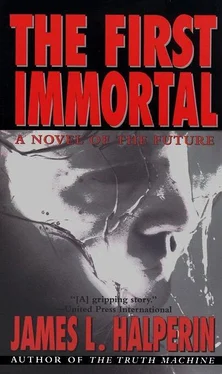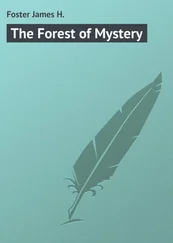She shook her head. “Even people whose brains could have been saved. I know it’s true, but it’s so hard to believe. How could it have happened?”
“It’s complicated,” Ben explained. “For one thing, our natural way, before nanotech, was to be somewhat naive as young adults; by then we felt immortal anyway. And for the first two to four decades of adulthood, we tended to thrive. Experience would more than compensate for our mild losses of mental and physical acuity. Then suddenly the aging process would start to overcome us, and it gradually made our lives less pleasant; made you less able to resist disease, drained your energy.”
“And shriveled everyone’s skin, too. I’ve seen pictures.” She wrinkled her nose.
“Not to mention what happened to eyesight and hearing, digestion, and joints. Of course it happened so slowly that we barely noticed it was killing us. Nobody liked to think about aging and death, yet almost all of us considered it inevitable. So young people would wait till they were older before they’d worry about it. And old people didn’t have the strength to go against the grain, to fight the hysteria of the times.”
“What hysteria?”
“Superstition, I suppose. Nothing else I can think of to call it. Oh, it’s possible some people would’ve been frozen if it were less expensive. But if more had signed up, and if the government had passed laws to make it easier and safer, freezing wouldn’t’ve cost a whole lot more than being buried. Maybe even about the same. The real reason it didn’t happen that way was superstition and inertia. Hear something often enough, you tend to believe it; believe in something long enough, and it becomes reality. The tradition of most religions back then was that the dead must either be buried or cremated for their souls to be reincarnated, or go to heaven.”
“Heaven? I know that’s a good thing, but what does it mean exactly?”
“Paradise. An eternal reward for your good deeds in life. Back then, most people believed in resurrection—an afterlife.”
“You mean somewhere else other than this solar system?”
“Yes. An altogether different universe.”
“How would they get there?”
Ben shrugged. “The theory always was that God had somehow arranged it, magically. It was pure speculation, of course, since no one could ever prove they’d been there. Faith, they called it. But blind faith was more like it, because it was only humans, purporting to act as God’s emissaries, who’d described the nature of this place called heaven.”
“Why don’t people believe in heaven anymore?”
Ben groped for a simple way to describe what had happened. “Before the early twenty-first century, afterlife was a useful idea. Anticipation of heaven or paradise or nirvana made the idea of death more bearable, and caused people to be more cooperative with each other. But after the scip was invented, more of us started choosing our own belief systems, since it became more obvious that nobody knew the truth for certain. And around 2035, a couple decades after most people first started to realize they might never die, the AIs calculated that belief in afterlife actually encouraged reckless behavior, even a subtle form of suicide sometimes. I suppose the uncertainty of death panicked certain people; made them think: Why not now?”
“Weird.”
“Not really. Everyone becomes unhappy, temporarily unhappy, or scared for various reasons. And if they believed in heaven, they’d tend to care less about sticking it out; waiting until things improved, or struggling to change them.”
“But it still could be true, couldn’t it? There might be an afterlife, like heaven.”
“Sure, it’s possible. Afterlife’s a reality about which the living can never know. The point is, there’s no real proof. And worse, you’d have to die to find out. When I was ‘dead,’ if there was an afterlife, I sure don’t remember it.”
“But we do know we’re living now,” Margaret said, “here on Earth. Today. We absolutely know that!”
“That we do.”
“We also know that life is better than death, don’t we?”
“Of course it is. Without life, the universe has no meaning.”
“And accidents and suicide are the only reasons people die now. But if you’re careful enough, if you don’t take silly chances, you could live long enough to be around when scientists figure out how to end all death.”
“Seems possible,” Ben said. “Even likely.”
“So in today’s world, who cares if there’s an afterlife?” asked Margaret.
“Precisely!”
Just then, my image appeared on Ben’s corneal-implant screen. “How soon can you get here?” I asked. “It’s an emergency!”
He answered through his dental PC: “What do you mean by emergency, Trip? Margaret’s with me.”
“Oh,” I said, feeling like an idiot. “Maybe I’m a little too excited. By all means, take her home.” “Twenty minutes,” he advised.
The moment Ben stepped into my living quarters, two great, furry, sixty-five-pound balls of dog stood upon hind legs and, pressing paws against his chest, licked widely at either side of his face. Both Wendys were ecstatic to see him, of course. How could they have known?
I was not so fortunate.
The unfolding story of our neighborhood singularity, so provocatively named Nemesis, had begun to consume my every thought. All my instincts told me that today’s discovery would radically transform the very paradigm of our new immortalist society. Unless my impromptu calculations were in error, the singularity that had passed through the Oort Cloud of comets, about a light-year distant from us, had already pulled huge clusters away, hurling many toward our sun and its orbiting planets. Every sixty-five million years or so, the Earth had experienced major extinctions, the most recent of which being that of the dinosaurs—roughly sixty-five million years ago. This phenomenon now seemed the most logical explanation for it.
Of course, after sixty-five million years such a black hole might have gained substantially in mass, loosing perhaps ten times as many renegade comets upon us as last time. But the comets seemed almost a trivial problem. With a century or more to prepare, we could, I was fairly convinced, design a method for detecting and deflecting—or even using nanoreplicators to digest—all of them in time. No, the real problem was the singularity itself, which, according to my AIs, was now heading straight toward the inner solar system and would likely draw several planets, including Earth, catastrophically from their orbits.
There was simply no way to deflect or devour a black hole, at least no method known to modern science.
The notion terrified me. Here we’d all but conquered human death, only to discover that our huge new expanses of time might not be so infinite after all.
I’d called my great-grandfather because I needed the input of someone who had a perspective of glued-to the-television events such as the assassination of a President, the moon landing, the fall of Saigon, the Falkland Islands War, and the like. While my own life span had witnessed hyperaccelerated changes, those life-redefining events, above the personal-tragedy level, had been incremental and almost universally for the better. Suddenly I felt this potential world-shatterer squeezing me like the hand of an angry giant. I hoped Ben could help.
He listened to my story and summation, and though he said nothing particularly derogatory or dismissive, as we talked Ben’s facial expressions became increasingly skeptical. His was the sort of countenance one might expect to encounter on the face of a modern scientist watching sixteenth century religious scholars debate, in all seriousness, how many angels could dance on the head of a pin.
Читать дальше












